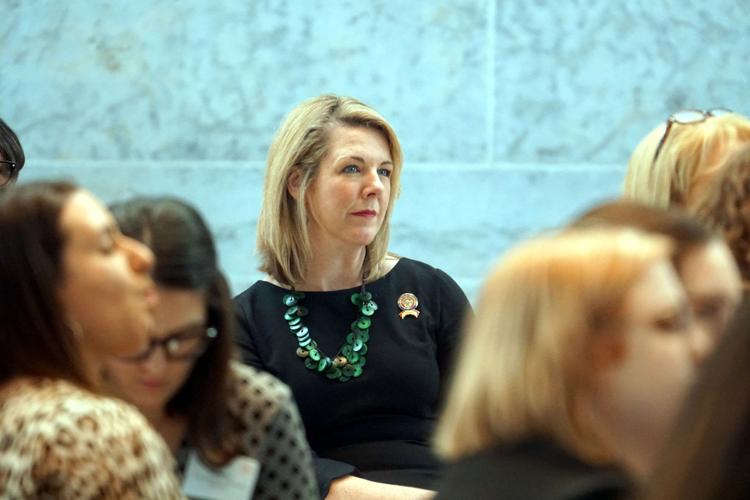House Dems push to allow legislative staff to unionize; opponent says it would cost taxpayers more

Ohio state Rep. Allison Russo.
(The Center Square) – House Democrats said they plan to introduce a bill that would allow legislative staff to unionize.
The bill would eliminate a provision in the Ohio Revised Code that bans collective bargaining for exempted state employees, including legislative staff.
“All government employees, including our own legislative staff, should be able to voluntarily organize and bargain collectively for safe working conditions and better pay,” state Rep. Allison Russo, D-Upper Arlington, said in a statement. “As legislators, we have the ability to remove current legal barriers and stand up for workers’ rights by updating state law. In light of recent events, there is no better time than the present to do so.”
The push comes after a House staffer tested positive for COVID-19, prompting Democrats to call for “transparency and clarity” on how cases are handled.
“Ohio workers, including our staff, have a right to a safe workplace,” state Rep. Jessica E. Miranda, D-Forest Park, wrote in a letter to House Speaker Larry Householder, R-Glenford. “The public have a right to safety at the legislature. No one should have to risk their lives or the lives of their families to interact with their government.”
A spokesperson for House Republicans did not immediately respond to a request for comment. Last week, in the wake of the positive test revelation, Householder announced he reinstated a policy allowing House staff to work from home.
“The health and well-being of House staff is our top priority,” Householder wrote in a memo to House members and their staff. “This decision is being made out of an abundance of caution.”
A vice president at a right-to-work group said he opposed the push to allow House legislative staff to unionize, saying the move would cost taxpayers more.
“It is wrong for union bosses and their pet politicians to use COVID-19 as an excuse to extend their monopoly bargaining powers to Ohio legislative staff, who would be forced to accept the so-called ‘representation’ of union bosses just to serve the people of Ohio,” John Kalb, vice president at the National Right to Work Committee, said in an email. “On top of that, granting union bosses greater control over the government just brings inefficiency and more wasteful work rules to state governments while leaving taxpayers to pick up the tab.”

